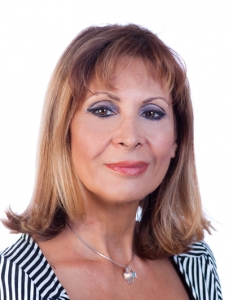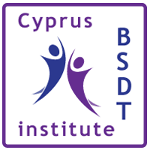BRIEF SYSTEMIC DIALOGICAL THERAPY
INSTITUTE AND THE BSDT MODEL
The Cyprus Brief Systemic Dialogical Therapy –BSDT– Institute was founded in October 2013. Its purpose is to promote new ideas and innovative practices in the field of Counseling and Psychotherapy through training and other activities. It aims at contributing to a new philosophy and culture in regard to peoples’ personal, professional and socio-political development in our country.
The BSDT Model, on which the Institutes’ philosophy is based, was created by Dina Mousteri. It is the end product of long term personal studies, research and clinical experience in the context of her 32 years employment in the Cyprus Public Mental Health Services. Also, the model was created from integrating ideas within the field of recent systemic thinking and psychotherapy to which the founder proceeded when she was appointed Scientific Coordinator of the Individual and Family Psychotherapy Centre of the Government Mental Health Services during the years 2006- 2012.
The BSDT model and philosophy in training, therapy and supervision is an integrative approach used in therapy with individuals, couples and families as well as in matters of social discourse and public dialogue. One of the most important reasons for creating the Institute was to empower professionals and specializing students in the broad field of mental health through short intensive training programs.
The training programs are specifically designed to offer theoretical knowledge and practical skills in a particular approach used in counseling and psychotherapy. According to the BSDT model, such knowledge expansion is highly depended on the creative use of the immense possibilities offered by Collaborative Dialogue.


THEORETICAL FOUNDATIONS
he theoretical foundations of the model are based on a combination of ideas from Solution Focused Brief Therapies, initiated in the 70´s by Steve de Shazer, the Narrative Therapies and the evolving Dialogical Therapies within the broader systemic and constructionist field (mainly informed by the ideas of K. Gergen, H. Anderson, T. Andersen, M. White, J. Seikkula and the recent dialogic developments of the Milan Systemic School of Family Therapy and elsewhere). The model is open, dynamic and integrative, welcoming ideas from a variety of theories, such as Humanistic –Existential as well as Cognitive and Psychodynamic theories. The core concept of the training philosophy is that of Collaborative and Transformative Dialogue.


The central idea of BSDT’s philosophy is that personal development is closely linked to the understanding of the inextricable connections between the individual experience and the realm of culture and language. The keys to any desired change are found both in the personal capacity for self-reflection and the development of skills in interpersonal communication within the various contexts whereby the individual experience is intersected with the dominant narratives and the normative social discourses.
The concept of doing therapy through the art of dialogue has a long history from antiquity and the ancient Greek philosophers to the contemporary field of western scientific research and psychotherapy.
It forms the essence of the Brief Systemic Dialogical model. The “space between people” is a place of intersection between the self and the collective life. It becomes an arena whereby personal identities and personal world views are constructed, through an ongoing process of internalization and externalization of ideas, beliefs, behaviors and emotions.
The application of the art of Collaborative Dialogue is the therapeutic tool both in the context of a professional relationship, as well as within the domain of personal development and interpersonal communication. Self reflection, mutual understanding and collaborative meaning making are the basic elements of Collaborative Therapeutic Dialogue.
Collaborative Dialogue, as it is applied in the BSDT approach in therapy, offers the opportunity for people “trapped” into stories of failure and distress, to free themselves from the power of debilitating problems created in the context of those stories and supported by the significant people involved, including mental health professionals as well.
The skillful combination of ideas from a wide spectrum of theoretical concepts and practical tools allows for the emergence of alternative stories that offer hope for the future and some effective ways for the development of choices in the construction of preferred realities and futures.
The philosophy of the Institute is promoted through a series of programs addressed to professionals and to specializing mental health trainees as well as to the public.
The theory and practice of the BSDT model were presented in International Conferences and in a recent article in press. It has been continuously developing and evolving through training programs organized in collaboration with the University of Nicosia and supervised by leading international authors and trainers in the field of Collaborative Dialogue. The content and level of the Institute’s training programs are in accordance with the level and quality of the programs offered by their consultant and supervisors who have inspired the BSDT philosophy and approach. The Institute is closely linked with the Tao’s Institute and its founder and director is a Taos Associate member.

OUR TEAM




